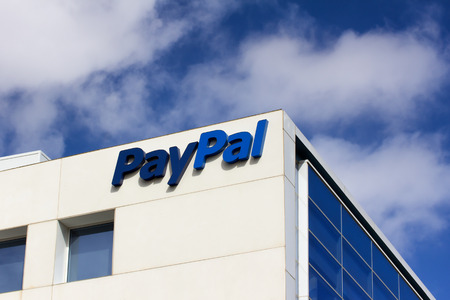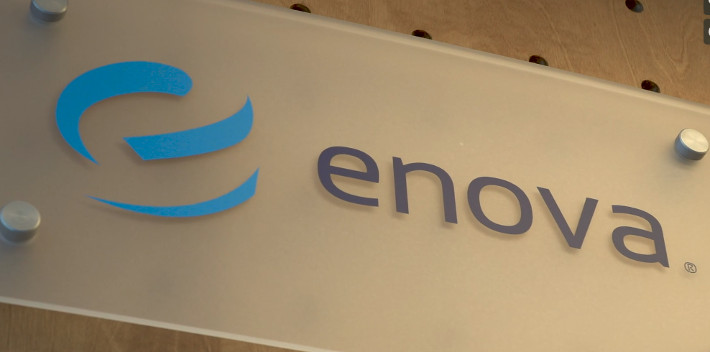Articles by deBanked Staff
PayPal, King of The Small Business Lenders?
August 3, 2022 PayPal didn’t offer precise quarterly origination figures for its “Working Capital” loan product on Tuesday, but it did reveal total originations since 2013. The number? 1.3M loans for a total of $25.6B across the US, UK, Australia, and Germany. Though there is an international component, the totals are higher than rivals OnDeck and Square Capital over the same time period.
PayPal didn’t offer precise quarterly origination figures for its “Working Capital” loan product on Tuesday, but it did reveal total originations since 2013. The number? 1.3M loans for a total of $25.6B across the US, UK, Australia, and Germany. Though there is an international component, the totals are higher than rivals OnDeck and Square Capital over the same time period.
“PayPal Working Capital (PayPal Funding Pro) expanded to France and the Netherlands,” PayPal said in its Q2 announcement, “providing SMBs with simple and flexible funding in minutes.”
The company’s small business lending operations draw little attention given that its payment business, which includes Venmo, is so massive. The size of it first became known in 2019 when it offhandedly claimed $4 billion in annual business loan origination volume for the year. That number shrank to $2.6B in 2020 during the pandemic, which was still more than all of its competitors.
In the US, its loans are actually made possible through WebBank.
As Layoffs Hit Fintech Lenders, It’s Not All Roses
August 1, 2022Underneath all the good news about hiring sprees, loan volume surges, and profitability, is ironically just the opposite. Some fintech lending darlings of Wall Street have abruptly changed gears over the past few months and are now in a state of self-preservation. Is this a normal business cycle or is something else going on here?
4/19/22 – Better.com lays off 3,900+ workers, a figure that includes a round that began in December 2021.
5/24/22 – Klarna lays off 10% of workforce.
6/15/22 – Coinbase announced plans to layoff 18% of its workforce.
6/21/22 – NextPoint announces end of LoanMe business, citing “market conditions.”
6/27/22 – Amount lays off 18% of workforce.
7/13/22 – Kabbage confirms it is facing two DOJ investigations over its handling of PPP loans.
7/27/22 – Shopify Capital grew originations but Shopify’s parent company announced it was laying off 10% of employees due to lower than expected post-pandemic e-commerce sales.
7/29/22 – Clearco announces major layoffs (125 employees), citing inflation, interest rates, European challenges, and a slowdown in e-commerce growth.
7/29/22 – Amazon shrank its staff by 100,000 employees.
Clearco Announces Major Layoffs, Paints Gloomy Picture
July 29, 2022Clearco, the international small business funding company led by celebrity CEO Michele Romanow, announced it was laying off 125 employees on Friday. Romanow shared the news on social media in an overall gloomy message about the business’ state of affairs. For one, the company says that Clearco is currently “considering strategic options” for its international operations.
In a letter from Romanow and Executive Chairman Andrew D’Souza, they state:
The short answer is the current macroeconomic environment looks very different today than in 2021. We have rising interest rates not seen since the mid-90s, the highest inflation in four decades, one of the biggest swings in European currency since the founding of the Euro, all compounded with a slowdown in e-commerce growth that’s been well documented and continued supply chain issues for companies of all sizes.
We were building to match the growth of the economy and now face significant headwinds that simply didn’t exist six months ago. We grew our headcount too quickly in anticipation of continued economic growth and that decision rests on us alone.
After assessing the current market conditions and uncertainty we’re seeing across the e-commerce sector, this was the most prudent action to take and was necessary to:
1. Ensure we’re able to support as many founders as possible, today and in the future, in their growth journey and;
2. To come out of this economic downturn a sustainable and profitable company.
Enova Originated $679M in Small Business Loans in Q2
July 28, 2022 Enova announced another strong quarter on Thursday. Net income for the second quarter was $52M.
Enova announced another strong quarter on Thursday. Net income for the second quarter was $52M.
Business lending originations were up, increasing 3% quarter over quarter to $679M. During the earnings call, Enova CEO David Fisher spoke glowingly about the company’s marketing capabilities and overall loan growth.
“We are pleased to report continued strong loan growth and solid credit metrics across our portfolio,” he said. “We have successfully demonstrated our ability to quickly adapt to changes, including shifting macro-economic conditions. We continue to see strength in consumers and small businesses as high employment and rising wages provides an ideal backdrop for solid credit performance. Looking forward, we are confident that our highly flexible, online-only business model and well-diversified portfolio positions us well to continue to drive profitable growth while also effectively managing risk.”
deBanked Happy Hour is Tonight in NYC
July 28, 2022Update: Photos are here
If you registered in advance for the summertime deBanked Happy Hour tonight in NYC, it’s from 7-9pm at Stout near Bryant park. There’s many Stout locations so remember Bryant Park! Registrants are primarily folks from the small business finance ecosystem.
Shopify Capital Originated $416.4M in MCAs and Loans in Q2
July 27, 2022 Shopify Capital originated $416.4M in funding to small businesses in Q2, the company announced. That was spread across the US, Canada, and the UK. The figure represented a large increase over the $346.7M in Q1.
Shopify Capital originated $416.4M in funding to small businesses in Q2, the company announced. That was spread across the US, Canada, and the UK. The figure represented a large increase over the $346.7M in Q1.
Although its funding business grew, the overall parent company announced that it was laying off 10% of its employees. The CEO explained that this was a correction to its expectations that pandemic-driven e-commerce sales would continue to soar for a long time, but that they have instead slowed.
DailyFunder Marks 10 Year Anniversary
July 26, 2022 The DailyFunder.com domain was registered ten years and 1 month ago. Formed two years after the debut of deBanked, DailyFunder went on to become the most active small business finance community in North America. The forum has generated more than 160,000 posts and has more than 12,000 members. It has regularly surpassed two million page views per year.
The DailyFunder.com domain was registered ten years and 1 month ago. Formed two years after the debut of deBanked, DailyFunder went on to become the most active small business finance community in North America. The forum has generated more than 160,000 posts and has more than 12,000 members. It has regularly surpassed two million page views per year.
“There is no doubt that the DF has impacted the trajectory of the industry over the last decade,” said Sean Murray, who founded it. “The site receives thousands of visitors per day. In the early years it ushered in an era of broker commission transparency.”
Murray recalled a time when sales agents were not always aware that there were even commissions being paid at all.
“There were reps who thought that they had to charge merchants a separate fee in order to earn anything at all,” Murray said. “And their bosses were taking 50% of that. When I would bring up commissions, they’d be like ‘wait, the funders are paying my boss for these deals too?’ and I’d be like ‘how do you not know this?’ Widespread communication via the forum eliminated a lot of the secrets.”
One of the most popular categories on the forum in more recent times has been the Deal Bin, where brokers try to find placement for deals. It’s recorded more than 41,000 posts.
“Ten years is a lifetime as far as I’m concerned,” Murray said. “Love it or hate it, everybody knows the DF. If you’re a lender or funder, your brokers are lurking on there whether they admit it or not.”
Merchant Loses Whole EIDL After Attempting to Earn High Yield On It
July 25, 2022 It’s a tale of Covid EIDL relief gone wrong. A small business owner in Colorado Springs, CO is begging for his funds back after taking the entire lump sum of his EIDL funds ($525,000) and depositing them with a high-yield non-FDIC insured cryptocurrency tech company. The tech company, Celsius, declared bankruptcy less than two months later, yanking the merchant’s EIDL funds with it. Celsius was not a bank, the arrangement not a true deposit account, and the funds not FDIC-insured.
It’s a tale of Covid EIDL relief gone wrong. A small business owner in Colorado Springs, CO is begging for his funds back after taking the entire lump sum of his EIDL funds ($525,000) and depositing them with a high-yield non-FDIC insured cryptocurrency tech company. The tech company, Celsius, declared bankruptcy less than two months later, yanking the merchant’s EIDL funds with it. Celsius was not a bank, the arrangement not a true deposit account, and the funds not FDIC-insured.
In a letter submitted by the merchant to the bankruptcy court, he says that he deposited the funds there to “earn an APY to help pay back the 3.9% on the loan…” He further added that he believed his account to be safe because of the site’s Terms of Use.
“The funds in my Celsius Custodial account are not mine, they are the US Governments and I my entire business is secured and backed by these funds,” he wrote. “If they are not returned, my business would go bankrupt, my 15 employees would be let go, and 14 years of my life’s work lost and at the age of 49 years old, I would have to start over with nothing.”
Prior to the bankruptcy, Alex Mashinsky, Celsius’ CEO, oft touted the phrase: “banks are not your friend.”






























